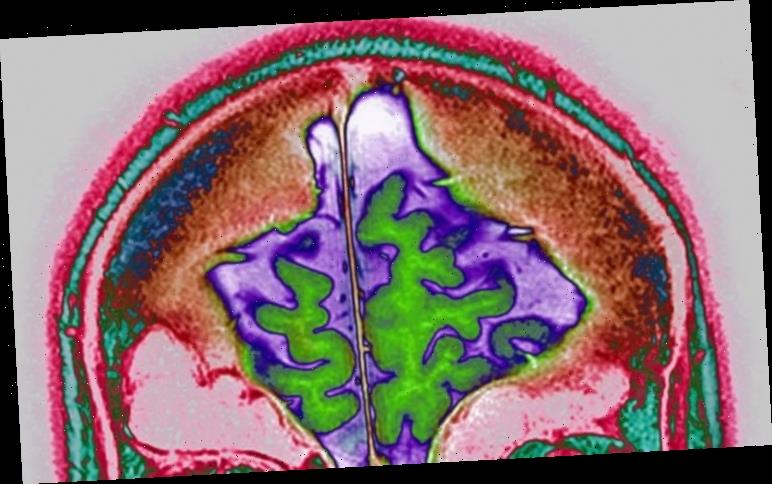The new research underscores how little is understood about the virus, which was originally reported as a purely respiratory disease. Globally coronavirus has infected 8,018,742, and as of June 15 436,406 have died from the virus.
Thomas Hartung and colleagues from John Hopkins University revealed the shocking discovery.
The reveal came after the team added low levels of the virus to small neuronal balls grown from stem cells.
It was found that the virus infected neutrons in the “mini-brains” through the ACE2 protein, known as an entry point for Sars-Cov-2.
COVID-19 then multiplied within the brain cells, and within three days the virus had developed tenfold.
Prof Hartung, a toxicology expert at Johns Hopkins, said: “It is really critical to know that our most precious organ can be directly affected by the virus.”
He added that it was unclear whether this was a common occurrence in COVID-19 patients.
The study remains under peer review from the journal Altex, and has not yet been formally published.
It follows unconfirmed reports of neurological symptoms in patients, where more than a third of hospitalised Wuhan victims experience symptoms like dizziness, headaches and most worryingly seizures.
But it still remains unclear whether COVID-19 affects the brain and nerve cells directly, or if these symptoms are caused by damage from the virus’ initial damage to the immune and cardiovascular systems.
One example is that patients have commonly suffered a loss of smell: It is not know whether this is due to direct infection of nose cells or a side effect from infection involved in olfaction.
Another example is in the unknown duration of the effects of the virus: According to research, about one in 20 patients experience long-term or on-off symptoms.
DON’T MISS:
‘Scrap it!’ Boris Johnson urged to reduce two-metre rule [POLL]
One metre is far enough! Expert rubbishes two-metre social distancing [VIDEO]
My friends are behaving like idiots in lockdown says VANESSA FELTZ [COMMENT]
John Hopkin’s findings are particularly concerning as for the disease to attack the brain, it needs to penetrate the blood-brain barrier shielding organs against most viruses and chemicals.
But the university’s “mini-brains” lack this barrier, and as a result the risk of it remains unclear.
Prof Hartung said: “Whether or not the Sars-Cov-2 virus passes this barrier has yet to be shown, but it is known that severe inflammations, such as observed in COVID-19 patients, make the barrier disintegrate.”
The “mini-brains” were developed four years ago as standardised organoids for drug toxicology testing.
Source: Read Full Article




